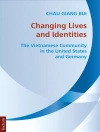How do humans interact with their environments? How do their actions influence biodiversity loss, climate change and pollution? And how do differently situated people respond to these transformations in specific ways?
This book serves as an introduction to the research and practice of environmental anthropology. It presents current key concepts and debates, and highlights social-ecological issues. Readers will learn about the origins of the field, and about recent approaches to landscapes, infrastructures, Anthropocenes and ontologies. They can delve into environmental-anthropological research on water, plants, animals and human bodies, and are invited to explore issues around climate change, disasters, extractivism, conservation and environmentalism.
Cuprins
Anthropology, Ecology and Environments: an Introduction 8
Why Environmental Anthropology? 8
What Does This Book Offer? 10
Part I Roots 13
1 Cultural Ecology 14
Humans and Environments in Early 20th Century Anthropology 14
What Is Cultural Ecology? 15
Comparative Accounts of Foraging Societies. 19
The Emergence of Ancient Civilisations 21
Cultural Ecology in Modern Complex Societies 23
Alternative Roots of Environmental Anthropology 24
2 Multiple Ecologies 29
From the 1960s: Multiplying Approaches 29
Cultural Materialism 29
Ecological Anthropology 32
Symbolic and Linguistic Ecology 37
Into the 1990s: The New Ecologies 38
Political Ecology 38
Environmental History and Historical Ecology 41
Research into Coupled Human-Environment Systems 44
Local Knowledge . 45
Part II Approaches 51
3 Landscapes 52
A Stroll through the Eifel 52
Landscapes for Transdisciplinary Anthropology 54
Natural and Cultural Landscapes 54
A Very Short History of Landscape 57
Temporal Landscapes 59
Contested Landscapes 62
4 Infrastructures. 67
Of Fences, Waterholes and Wildlife Corridors 67
Infrastructure – Approaches, Definitions, Challenges 68
Environmental Infrastructure 73
Multispecies Infrastructure 74
5 Anthropocenes 79
The Anthropocene: Why, What and When?. 79
Anthropological Engagements with the Anthropocene Concept 84
Responsibility in a Patchy Anthropocene 90
6 Ontologies 95
Tirakuna 95
Anthropology and Ontology 96
Beyond the One-World World 96
How Many Worlds Are There? 101
Ontological Politics 103
Part III Foci 109
7 Water 110
Water Wars? 110
Water and Anthropology 111
Social Waters 112
Managing Waters 117
Meaningful Waters 120
8 Plants and Fungi 128
Lawn Culture 128
Planthropology 129
Knowing and Using Plants and Fungi 129
The Politics of Travelling Plants 132
Relating with and through Plants and Fungi 135
Growing Plants and People 139
9 Animals 147
A Self-sacrificing Animal 147
Animals as Sustenance 148
Animals as Symbols and Knowledge 154
The Animal Turn and Multispecies Anthropology 158
Extinctions and Rewilding 161
10 Bodies 166
Kidney Failure or State Failure? 166
Bodies in Their Environments 167
Bodies Beyond the Skin 167
An Embodied Anthropocene 172
Local Biologies, or Becoming Human in Company 178
Part IV Fields 185
11 Climate Change 186
Misunderstanding Rising Sea Levels 186
The Perception of Weather 188
The Influence of Scientific Narratives on Local Knowledge 189
Explanations for a Changing Climate 191
Making Rain 192
Climate Change in Focal Regions of the Globe 194
And What about Europe? 198
12 Disasters 204
An (Un)natural Disaster 204
What Is a Disaster? 205
Hazard, Vulnerability and Resilience 205
Disaster Temporality 209
Illusions of Certainty, Stability and Progress 213
Knowledges and Beliefs 216
13 Extractivism 223
Cursed Resources? 223
Anthropologies of Resource Extraction 224
What Is Extractivism? 224
Resisting Extractivism. 227
Transforming Extraction 230
Waste: Extractivism’s Conditions and Afterlives 234
14 Conservation 240
Lands Lost to Conservation 240
What Is Conservation? 241
A View of Global Conservation Efforts 242
The Environmental History of Conservation 243
Community-based Conservation 246
Conservation and Changing Livelihoods 248
Conservation and Socio-political Dynamics. 250
Ecological Effects 253
Emergent Perspectives 254
15 Environmentalisms 261
Global Protest against a Hydropower Project 261
What Is Environmentalism? 262
The Historical Emergence of Western Environmentalism 265
Non-Western Environmentalisms 268
Indigenous Environmentalisms and Decolonisation 277
Glossary 282
Index 287
Despre autor
Franz Krause ist wissenschaftlicher Mitarbeiter am Institut für Ethnologie der Uni Köln und am Global South Studies Center.












